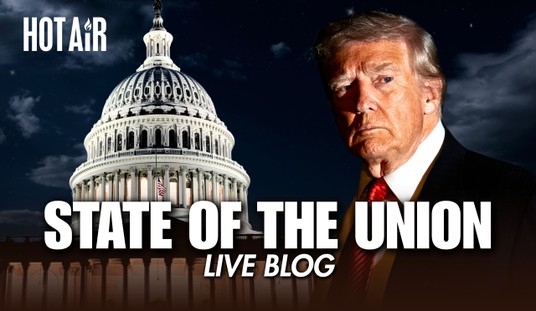… the same woman who stood between both in the previous four congressional election cycles. Nancy Pelosi once again finds herself starring in Republican attack ads in districts Democrats need to win to regain the House majority. And once again, Democrats are wondering why they still have this albatross handing around their necks:
While Democrats grow optimistic about their chances of taking control of the House in November, they are increasingly anxious that the presence of their longtime and polarizing leader, Nancy Pelosi, is making it harder for many of their candidates to compete in crucial swing districts.
Republicans, clinging to a 23-seat majority in the House, have made the House minority leader a central element of their attack ads and are portraying many of their opponents as inextricably tied to the liberal from San Francisco. At the same time, some Democrats are expressing alarm that she is standing in the way of the next generation of leaders. …
“People pretend that it isn’t a problem, but it’s a problem that exists,” said Rep. Brian Higgins (D-N.Y.), who said he heard from frustrated colleagues this week concerned that the anti-Pelosi messaging cost Democrats in Ohio.
The tension is exacerbated by a growing generational rift in the Democratic caucus, with younger candidates and members looking to assert themselves against a leadership team that includes Pelosi, 78, and her top lieutenant, 79-year-old Minority Whip Steny H. Hoyer (Md.) Among the Democratic candidates who have declined to endorse Pelosi is Alexandria Ocasio-Cortez, the 28-year-old Democratic Socialist from Queens who has become a national star of the party’s left wing.
There are fewer pretending these days that the Pelosi problem doesn’t exist. NBC News reports that 50 House Democrat candidates have declared that they won’t support Pelosi for party leader regardless of the outcome. However, only nine of those are incumbents:
Fifty Democrats running for the House say they won’t support the California lawmaker for speaker, according to an NBC News survey of candidates and their public statements.
At least 41 of the party’s nominees for House seats have declared they will not back Pelosi and nine incumbent Democratic lawmakers are on the record opposing her.
The most recent voice to the chorus came Thursday, when Michigan Democrat Rashida Tlaib, who is on track to become the first Muslim woman in Congress, said she would “probably not” support Pelosi because “she doesn’t speak about the issues that are important to the families of the 13th congressional district, and they are a priority for me.”
An additional 34 Democratic nominees are neither for nor against Pelosi, who has led her party in Congress since 2003.
Want to guess how many of these will vote for Pelosi anyway? Democratic candidates played this game in 2014 and 2016, too, attempting to distance themselves from Pelosi’s hard-Left leadership while running in more moderate-to-conservative districts. It didn’t help most of them in the election, and the House Democrats who did make it through ended up voting for Pelosi anyway.
Why? She controls the money, that’s why. NBC wonders if this time will be different:
Pelosi’s justification for staying in her role has always been her fundraising prowess and her rise as the country’s most powerful female political leader. In April, her team bluntly reminded the party just how valuable she has been to their campaign coffers, saying that “since entering the Democratic leadership in 2002, the Leader has raised $659.6 million for Democrats.” (And, of course, Pelosi has famously stated that “I think I’m worth the trouble.”)
But does that argument play with a party that’s increasingly asserting that big money has no place in politics? Even Pelosi herself put out a Dear Colleague memo yesterday promising campaign finance reforms and noting that the “connection between money in politics and exploitation in policy is clear to the American people.”
The mounting count of Democrats on the record opposing her begs the question: Will the pressure on Pelosi become so great that she has to say before the election that she won’t seek the speakership?
Here’s a prediction: Nope. Pelosi wants that gavel back more than she wants to help her caucus ensure a win. And this time with all the headwinds Republicans face in this midterm, it might not matter anyway. But it means that these GOP attack ads are almost certainly accurate — a vote for a Democrat is a vote to put Pelosi in charge of the House. That might still be enough to win one last cycle (Andrew Malcolm will have more on that later), but don’t bet on that, either.








Join the conversation as a VIP Member